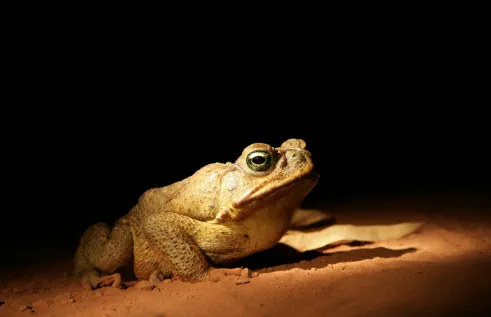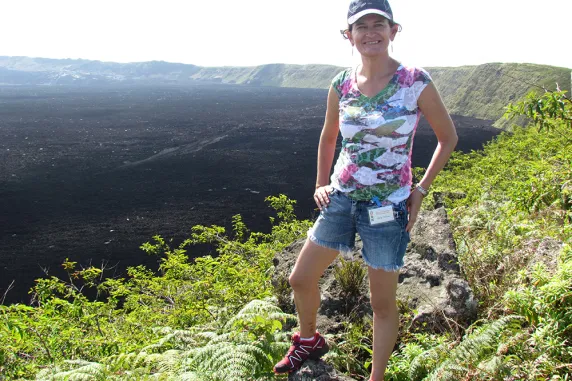news article
Galapagos expert to highlight links on Darwin Day
An expert insight into life on the Galapagos Islands will be the highlight of Charles Darwin University’s annual Darwin Day celebrations tomorrow.
Darwin Day commemorates the birth and extraordinary legacy of the university’s namesake, Charles Darwin, who was born on 12 February 1809.
CDU’s Research Institute for Environment and Livelihoods Dr Veronica Toral-Granda will speak on her research conducted on the World Heritage-listed Galapagos Islands as part of the event.
“The diverse flora and fauna on the islands were so influential in Charles Darwin’s thinking about the theory of evolution,” Dr Toral-Granda said.
“I lived on the Galapagos for 20 years and was closely involved with research and education there, including with CDU’s Galapagos field intensive program.
“CDU’s connections are immense to the Galapagos through research and education.”
Dr Toral-Granda will share an insider view of the Galapagos, how living there streamlined her research and how Charles Darwin’s philosophies are relevant to this day.”
The islands are known for their large number of endemic species that were studied by Charles Darwin in 1835, with his observations and collections contributing to the inception of the theory of evolution by means of natural selection.
Dr Toral-Granda moved to the Galapagos from Ecuador in 1995, where she quickly realised the two biggest threats to the islands were human population growth and invasive species.
As part of her research she discovered more than 1600 alien species had found their way to the islands which threaten native wildlife.
Dr Toral-Granda said introduced species were among the top threats to biodiversity on oceanic islands, with their arrival and spread closely linked to human trade and travel.
“Since their discovery in 1535, the sailors, pirates, settlers, and tourists arriving on the Galapagos Islands have been accompanied by hundreds of exotic species, some of which have become highly invasive," she said.
“Species such as the introduced parasitic fly Philornis downsi are causing close to 100 per cent mortality rates of nestlings of some of the iconic Darwin finch species.
“Of the 1637 species introduced to the Galapagos, more than 70 per cent had arrived since the start of tourism in the 1970s.”
Dr Toral-Granda’s the Galapagos Islands: Darwin and Beyond talk will take place from 10am to 11.30am on Friday at the Mal Nairn Auditorium at CDU’s Casuarina Campus.
Related Articles

Nanoplastics hindering cognitive abilities of fish, international research shows
Nanoplastic exposure can impair the cognitive abilities of fish and could lead to significant impacts on marine species’ ability to survive, according to a new international study.
Read more about Nanoplastics hindering cognitive abilities of fish, international research shows
Eradication would cost billions: NT’s lessons for Pilbara’s cane toad management
Cane toads are predicted to invade Western Australia’s Pilbara region by 2041 if left unchecked, but the Northern Territory’s population of the pests hold key lessons that could save billions in eradication costs.
Read more about Eradication would cost billions: NT’s lessons for Pilbara’s cane toad management
New project to grow Indigenous aquaculture on one of Australia’s largest islands
An Australian island’s efforts to improve food security and transition into a blue economy will be bolstered by a new project to propagate a nutritious and increasingly popular fish.
Read more about New project to grow Indigenous aquaculture on one of Australia’s largest islands
